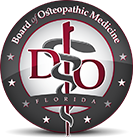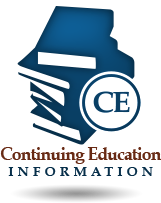HB 139 - Benefits, Training and Employment for Veterans and Their Spouses
Effective Date: July 1, 2023
HB 139 (Full Text)
Summary:
The bill establishes the Office of Veteran Licensure Services within the Florida Department of Health, Division of Medical Quality Assurance to provide information, guidance, direction, and assistance with health care licensure processes for all veterans and their spouses. Additionally, the bill requires Veterans Florida to assist veterans and their spouses with access, training, education, and employment in Florida’s health care professions.
SB 252 - Protection from Discrimination Based on Health Care Choices
Effective Date: June 1, 2023, except as otherwise provided in the act
SB 252 (Full Text)
Summary:
The bill prohibits business entities and governmental entities from requiring a person to provide certain documentation or requiring a COVID-19 test to gain access to, entry upon, or service from such entities or as a condition of contracting, hiring, promotion, or continued employment; prohibiting business and governmental entities from refusing to hire persons, discharging persons, depriving or attempting to deprive persons of employment opportunities, adversely affecting persons with respect to employment, or otherwise discriminating against any person based on knowledge or belief of a person’s vaccination or COVID-19 post infection recovery status or failure to take a COVID-19 test. The bill requires such entities to provide exemptions and reasonable accommodations for religious and medical reasons.
The bill amends several statutes in order to prohibit mask mandates, mandates on emergency use authorizations (EUA) vaccinations, messenger ribonucleic acid (mRNA) vaccinations, and COVID-19 vaccinations, and COVID-19 testing mandates in educational institutions, business entities, and governmental entities. The bill prohibits these entities and institutions from requiring proof of a vaccination with one of the specified types of vaccinations, post infection recovery from COVID-19, or a COVID-19 test to gain access to, entry upon, or service from the entity or institution. The bill also prohibits business and governmental entities from certain employment practices based on an employee’s, or a potential employee’s, vaccination or post infection status or the refusal to take a COVID-19 test. The bill’s provisions relating to mRNA vaccines are repealed on June 1, 2025.
Additionally, the bill prohibits business entities, governmental entities, and educational institutions from requiring a person to wear a mask, a face shield, or any other facial covering that covers the nose and mouth or denying a person access to, entry upon, service from, or admission to such entity or institution or otherwise discriminating against any person based on his or her refusal to wear a mask, face shield, or other facial covering. The bill provides exceptions to these prohibitions for health care providers and practitioners, if the provider or practitioner meets specific requirements established by the bill, and for when a mask or facial covering is required safety equipment. Business entities and governmental entities that violate these provisions are subject to discipline by the Florida Department of Legal Affairs (DLA) while educational institutions are subject to discipline by the Florida Department of Health (DOH). Such discipline may include fines of up to $5,000 for each violation.
The bill establishes requirements for mandating masks in health care settings. The bill requires the DOH and the Agency for Health Care Administration (AHCA) to jointly develop standards for the use of facial coverings in such settings by July 1, 2023, and requires each health care provider and health care practitioner who operates or manages an office to establish policies and procedures for facial coverings by August 1, 2023, that are consistent with the standards adopted by the DOH and the AHCA if they require any individual to wear a mask.
The bill prohibits governmental entities and educational institutions from adopting, implementing, or enforcing an international health organization guideline unless authorized by state law, rule, or executive order issued pursuant to a declared emergency.
The bill also creates and amends several statutes related to the provision of health care for COVID-19 including:
- Prohibiting a hospital from interfering with COVID-19 treatment alternatives that are recommended by a health care practitioner with privileges at the hospital.
- Requiring a health care practitioner to obtain specified informed consent from a patient before prescribing any medication for the treatment of COVID-19 to the patient.
- Prohibiting a pharmacist from being disciplined for properly dispensing medications prescribed for the treatment of COVID-19.
HB 267 - Telehealth Practice Standards
Effective Date: July 1, 2023
HB 267 (Full Text)
Summary:
The bill revises the definition of telehealth to include audio-only telephone call in the telehealth technology authorization statute.
HB 387 - Physician Certifications for Medical Use of Marijuana
Effective Date: July 1, 2023
HB 387 (Full Text)
Summary:
The bill authorizes a qualified physician who performs an in-person examination of a patient for the initial physician certification to use telehealth to conduct subsequent examinations of that patient for renewals. The bill also authorizes the Florida Department of Health to suspend the registration of a qualified physician for up to 2 years if the qualified physician violates the requirements of s. 381.986, F.S., or provides, advertises, or markets telehealth services before July 1, 2023.
SB 768 - Referral of Patients by Health Care Providers
Effective Date: July 1, 2023
SB 718 (Full Text)
Summary:
The bill amends s. 456.053, F.S., regulating financial arrangements between referring health care providers and health care service providers, to alter a safe harbor provision for permitted referrals from a health care provider to another provider for designated health services that solely serves patients of the referring health care provider. The bill removes the direct supervision requirement and the requirement that the physician be present in the office suite, allowing general supervision of such services from locations outside of the office where the services are provided. The bill allows self-referring health care providers to avoid the cost of having a physician present while health care services are provided. The change in state law also aligns with federal Stark law provisions regarding self-referrals by a health care provider to another provider in which the referring physician has a financial or other pecuniary interest.
HB 1133 - Physician Assistant Licensure
Effective Date: Upon signing
HB 1133 (Full Text)
Summary:
The bill revises the eligibility requirements for physician assistant (PA) licensure to applicants who matriculated into, rather than graduated from, an approved program on or before December 31, 2020. The bill also authorizes the Boards of Medicine and Osteopathic Medicine to grant a license to a PA applicant who does not meet the educational requirements in statute but passed the Physician Assistant National Certifying Examination.
HB 1471 - Health Care Provider Accountability
Effective Date: July 1, 2023
HB 1471 (Full Text)
Summary:
The bill addresses health care provider accountability related to nursing home residents’ rights, unlicensed facilities, and standards of care for certain office surgeries. Section 400.022, F.S., establishes an extensive list of resident rights that a nursing home must afford to its residents. The list includes, but is not limited to, the right to civil and religious liberties, the right to participate in social and other activities that do not impact other residents’ rights, and the right to refuse medication and treatment. The bill adds to the list of nursing home residents’ rights the right to be free from sexual abuse, neglect, and exploitation.
The bill authorizes the Agency for Health Care Administration (AHCA) to seek an ex parte temporary injunction to prevent continuing unlicensed activity by a provider who has been warned by the agency to cease such unlicensed activity. The bill establishes the temporary injunction process, including petition requirements, subsequent inspections to determine compliance, and a permanent injunction process if the provider is not complying with the ex parte temporary injunction. These changes apply to any entity licensed by AHCA.
With regard to office surgeries, the bill:
- Establishes standards of practice for physicians performing gluteal fat grafting procedures in office surgery settings.
- Requires that any duty delegated by a physician during a gluteal fat grafting procedure must be completed under the direct supervision of the physician.
- Provides that gluteal fat extractions and injections may not be delegated and that injections must be done under ultrasound guidance to ensure that fat is only injected into the subcutaneous space and not across the fascia covering gluteal muscle.
- Requires the Department to inspect any office where office surgeries will be done before the office is registered – if the office refuses such inspection, it will not be registered until the inspection can be completed.
- Provides that if an office that has already been registered with the Department refuses an inspection, its registration must be immediately suspended for 14 days and remain suspended until the inspection is completed.
SB 1580 - Protections of Medical Conscience
Effective Date: July 1, 2023
SB 1580 (Full Text)
Summary:
The bill establishes rights of conscience for health care providers and payors. The bill provides legislative intent and provides that a health care provider or payor has the right to optout of participation in or payment for a health care service on the basis of a conscience-based objection (CBO). The bill establishes notification requirements for opting-out and prohibits a payor from opting-out of paying for a service it is contractually obligated to cover during a plan year. The bill also specifies that CBOs are limited to specific health care services, that the bill may not be construed to waive or modify any duty a provider or payor may have for other health care services that do not violate a provider’s or payor’s conscience, and that nothing in the bill allows a health care provider or payor to opt-out of providing health care services to any patient or potential patient because of that patient’s or potential patient’s race, color, religion, sex, or national origin.
The bill prohibits health care providers from being discriminated against or suffering adverse action for declining to participate in a health care service based on a CBO. The bill also provides whistle-blower protections for providers or payors in specific situations and specifies that the bill may not be construed to override any requirement to provide emergency medical treatment in accordance with federal or state law.
The bill allows health care providers or payors to file complaints of violations to the Attorney General (AG) and authorizes the AG to bring a civil action for appropriate relief. The bill also provides civil immunity for health care providers and payors solely for declining to participate in a health care service on the basis of a conscience-based objection, with some exceptions.
Additionally, the bill prohibits a board, or the Florida Department of Health (DOH) if there is no board, from taking disciplinary action against a health care practitioner solely because he or she has spoken or written publicly about a health care service or public policy, including on a social media platform, as long as the speech or written communication does not provide advice or treatment to a specific patient or patients and does not separately violate any other applicable law or rule. The bill also authorizes a board within the DOH to revoke approval of any specialty board for revoking the certification of an individual for the same reason.
If you’d like to view all 2023 bills impacting health care professions, please go to www.flhealthsource.gov/2023-bills





